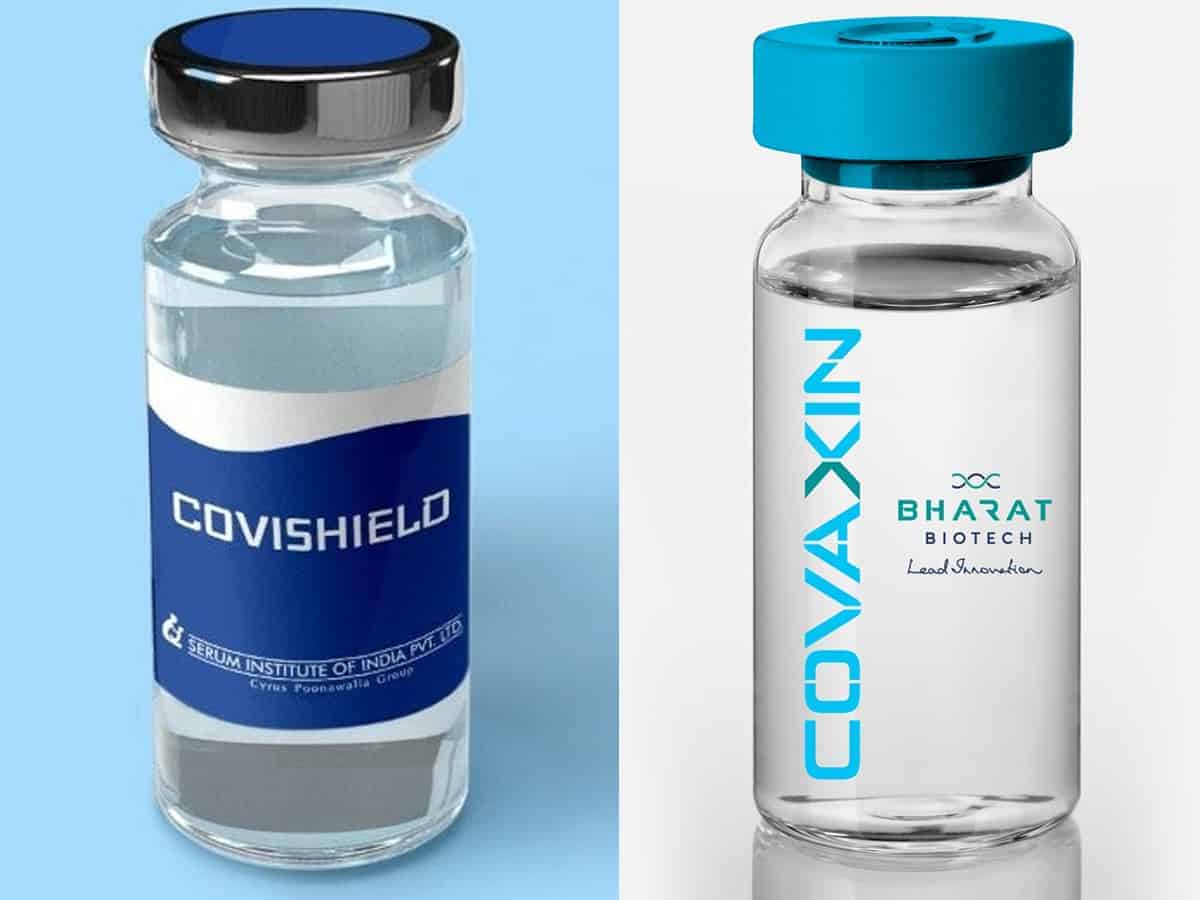On Sunday, the central drugs and standards committee organization (CDSCO) approved two vaccines to fight COVID-19 — Oxford-based Covishield developed by Serum Institute of India (SII) and indigenously developed Covaxin of Bharat Biotech for restricted emergency use in the country.
The vaccine developers, who are yet to release data on their respective phase-3 clinical trials in India, were recommended authorization on Saturday after a Subject Experts Committee (SEC), appointed by the CDSCO, deliberated for two days in two sessions lasting more than 6 hours each.
Covishield, which was given ‘conditional approval’ is based on the AstraZeneca-Oxford vaccine, has shown the efficacy of 70.4 per cent in phase-3 clinical trials conducted in the United Kingdom (UK) and Brazil. However, data on phase-3 trials conducted on 1,600 volunteers in 17 Indian cities are yet to be made public.
Covaxin, which was made in collaboration with the Indian Council of Medical Research (ICMR), was given approval only in clinical trial mode, which means the firm has to inform of any adverse events to drug regulators for 2 months every fortnight after rollout. The vaccine is currently in an ongoing phase-3 clinical trial with an expected 25,800 volunteers for which no data has been released yet.
Verdict so far
Both the vaccines have been deemed to be safe from phase-1 clinical trials, but that is not the same as efficacy, i.e., if a vaccine is effective in dealing with the virus.
Since Covishield has efficacy data even though it is not particular to the Indian population, it is expected to be not as risky as Covaxin, which is where most experts are concerned about. Nevertheless, it still means that India is the only country to approve a COVID-19 vaccine without efficacy data on its own citizenry.
Indigenously developed Covaxin on the other hand has no efficacy data in any human population. ICMR Director-General Dr. Balram Bhargava argued that the reason for approval for the vaccine was to combat mutant strains of the virus since Covaxin acts on the entire virus and not just the spike protein like the mRNA vaccines like Pfizer. He also said, “They have submitted efficacy data in rats, mice, monkeys. There is also some efficacy data from the phase I and II trials, and you can extrapolate from there.”
However, in an interview with CNBC-TV18, Dr. Gagandeep Kang, Professor at Christian Medical College, Vellore, said, “I’m completely unaware of any data that suggests that Covaxin has any efficacy against any SARS-CoV-2 strain, let alone the UK strain.”
Dr. Sumaiya Shaikh, Neuroscientist Consultant and Alt News Science founding editor, also said in a tweet, “There is no data to suggest efficacy as of 22 Dec based on phase 1 & 2 human trials in a total of 380 people who received vaccine doses.”
Dr. Shaikh also debunked a claim that Dr. Bhargava made as he said 22,000 people have been administered the vaccine in phase-3 trials and was found to be extremely safe. She said in a tweet, “Only (almost) 12900 will be given BBV152B vaccine and the other 12900 will be given a placebo,” based on the research papers released by Bharath Biotech.
ANI had also reported on January 2 that so far 23,000 volunteers have been recruited for the trial.
All India Drug Action Network’s (AIDAN) Co-convener Malini Aisola has also said in a statement, “We are baffled to understand what scientific logic has motivated top experts in the SEC to approve of this vaccine (Covaxin).” AIDAN has recently called for the withdrawal of approval for this vaccine.
Reacting to the controversy, Randeep Guleria, Director of Indian Institute of Medical Sciences, clarified that Covaxin was being considered as a “backup vaccine” in case Covishield’s efficacy was uncertain.
Vaccine nationalism?
In defense of Covaxin, Krishna Ella, Chairman of Bharath Biotech, in an online media conference, had gone so far as to criticize SII’s Covishield vaccine as he said, “The trials in the UK have shown widely varying efficacy. There is no data on its performance in Indians and it is well known that during the phase-3 trials some batches got only half the dose… An innovative Indian product (Covaxin) must be encouraged but I see that some of our scientists have been bashing me.”
Concerning the approval of the vaccines, Dr Faheem Younus, Chief of Infectious Diseases, University of Maryland, said in a tweet, “It’s a risky strategy to start vaccinating a population without scientifically published phase 3 trials showing safety and high efficacy. True for any country. Any vaccine.”
He added, “Vaccine nationalism is dangerous.”

